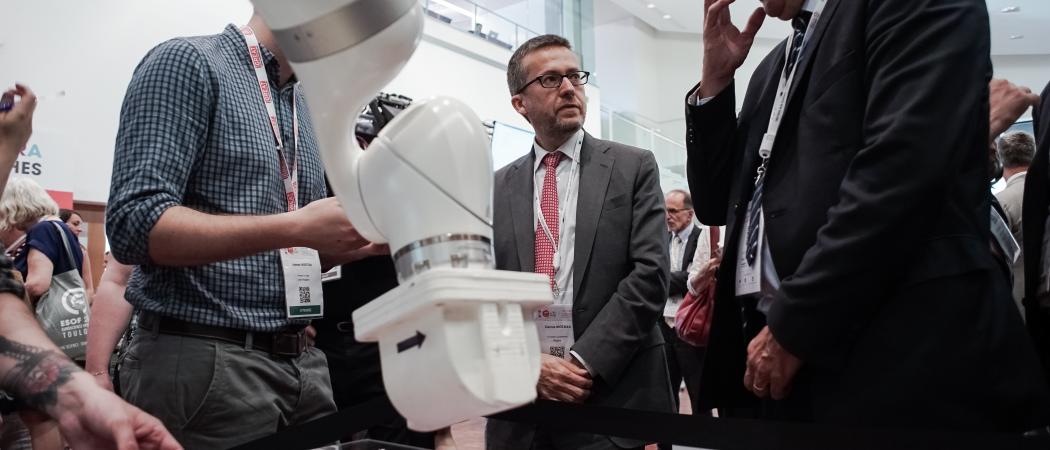Carlos Moedas bemoans erosion of trust in science and fact that truth is now seemingly immaterial. “Politicians lie, people still vote for them, how crazy is that?” he tells the Euroscience Open Forum meeting in Toulouse

Carlos Moedas, in the center, visiting the Euroscience Open Forum (ESOF). (Photo: European Commission)
The neglect of science advice in Donald Trump’s White House is “very serious” and reflects a bigger breakdown of trust in experts and objective truth, EU research commissioner Carlos Moedas said on Tuesday.
“This constant distrust of science we are witnessing these days is something I never thought I would see. We are seeing it now as the government of the most powerful country in the world refuses to appoint a chief science adviser. This is very serious,” Moedas told scientists and policymakers at the biennial EuroScience Open Forum in Toulouse.
Trump has broken with his modern-day predecessors by failing to nominate and appoint a scientist to lead the White House Office of Science and Technology Policy – traditionally the source of science advice for the president – and leaving other key science posts unstaffed.
There has been some indication in recent months that the administration is taking steps to fill these vacancies but Moedas says the void so far, along with a more general disdain for expert advice highlighted during 2016’s Brexit referendum in the UK, is indicative of a world becoming less friendly to science and truth.
“On the street, people don’t care if [something is] true anymore. The distinguishing line between truth and falsehood is vanishing,” he said, paraphrasing a quote from the political thinker Hannah Arendt. “Politicians lie, people still vote for them – how crazy is that?”
In the face of eroding trust, science has to respond by becoming more open and more compelling.
However, scientific findings remain too closed off. “We want people to be proud of European science and they don’t even know what we do,” Moedas said, vowing to set aside extra money in the next EU research programme, Horizon Europe, for preserving and opening up research data.
Science publishing benefits from a payment system in which the state funds most research and then has to buy back the finished product in the form of journals and access to databases. That is “outrageous”, the commissioner said. “I want science to be free for the reader.”
Resistance from publishers “is understandable”, but said Moedas, “We need to push very, very strongly against them, and help them find new business models.”
The European Commission will introduce new open access ideas and recommendations in a report authored by the former director-general of DG Research, Robert-Jan Smits, Moedas said.
A more general goal Moedas sets for the Commission is boosting its communications. There has never been a greater need to showcase science in exciting, imaginative ways, he said.
“You have to be the protagonist. If you are a scientist, you have to be the story. The first solar-charged flight would not have been anything without Bertrand Piccard,” he said.





 A unique international forum for public research organisations and companies to connect their external engagement with strategic interests around their R&D system.
A unique international forum for public research organisations and companies to connect their external engagement with strategic interests around their R&D system.